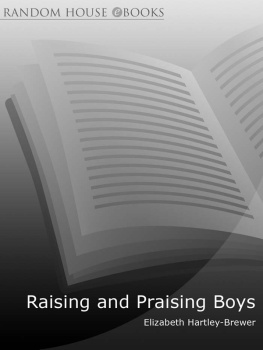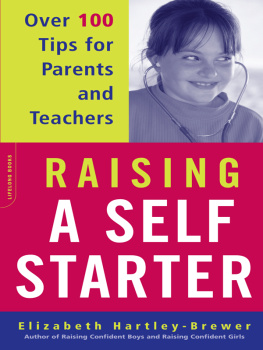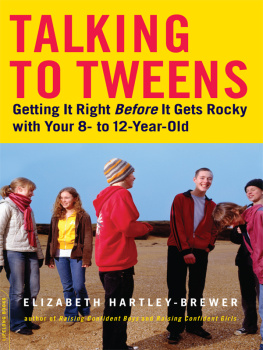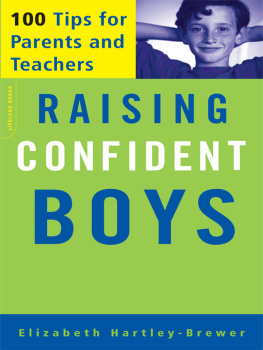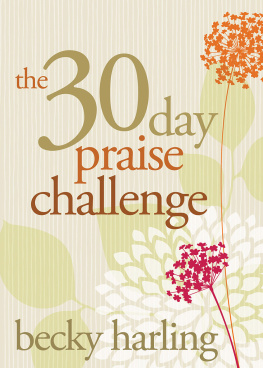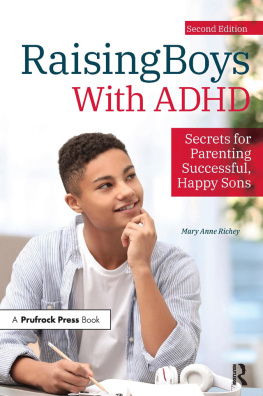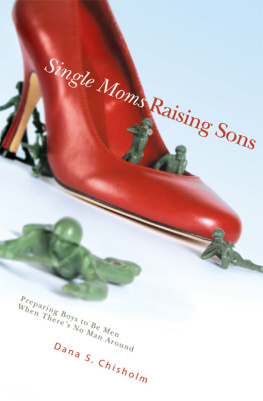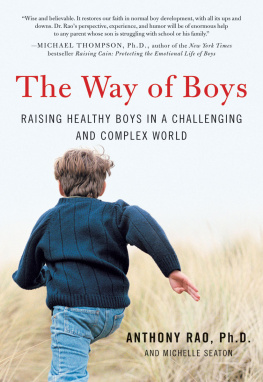Elizabeth Hartley Brewer

This eBook is copyright material and must not be copied, reproduced, transferred, distributed, leased, licensed or publicly performed or used in any way except as specifically permitted in writing by the publishers, as allowed under the terms and conditions under which it was purchased or as strictly permitted by applicable copyright law. Any unauthorised distribution or use of this text may be a direct infringement of the authors and publishers rights and those responsible may be liable in law accordingly.
Version 1.0
Epub ISBN 9781409004370
www.randomhouse.co.uk
3 5 7 9 10 8 6 4
Copyright Elizabeth Hartley-Brewer 2005
Elizabeth Hartley-Brewer has asserted her moral right to be identified as the author of this work in accordance with the Copyright, Design and Patents Act 1988.
All rights reserved. No part of this publication may be reproduced, stored in a retrieval system, or transmitted in any form or by any means, electronic, mechanical, photocopying, recording or otherwise, without the prior permission of the copyright owner.
First published in the United Kingdom in 2005 by Vermilion, an imprint of Ebury Publishing Random House UK Ltd Random House, 20 Vauxhall Bridge Road, London SW1V 2SA
Random House Australia (Pty) Limited 20 Alfred Street, Milsons Point, Sydney, New South Wales 2061, Australia
Random House New Zealand Limited 18 Poland Road, Glenfield, Auckland 10, New Zealand
Random House (Pty) Limited Isle of Houghton, Corner of Boundary Road & Carse OGowrie, Houghton 2198, South Africa
Random House UK Limited Reg. No. 954009
www.randomhouse.co.uk
Papers used by Vermilion are natural, recyclable products made from wood grown in sustainable forests.
A CIP catalogue record is available for this book from the British Library.
ISBN 9780091906740
Typeset by SX Composing DTP, Rayleigh, Essex Printed and bound in Great Britain by Mackays of Chatham plc, Chatham, Kent
Contents
For Richard.
And with grateful thanks to all the young people
and adults who shared their stories with me.

Introduction
This book has been written for parents with boys of any age babies, toddlers or teenagers and for teachers. Most of the tips cover general principles that have broad application but several relate to the ages and stages of child development, acknowledging childrens changing needs and perceptions. One of the most important lessons we have learnt over the last two to three decades is how much children, regardless of their age, benefit from receiving praise from parents and teachers. Children respond far better to positive feedback and encouragement than they do to threats, criticism and punishment. Many parents and teachers found it hard to use what they felt to be fulsome words, especially with boys; and although some still find it hard, most people are now sufficiently familiar and comfortable with common phrases to give praise in good measure.
Praise has been viewed as the way to boost childrens selfesteem, to help them feel confident and to fulfil their potential and be at ease with themselves. Many wont realise that using praise also has wider benefits for individual children and society, because it can help to encourage self-discipline and moral behaviour. However, nothing about parenting or children is straightforward. Boys and girls, for example, often react to praise in different ways and need their confidence reinforced in different areas. We are also beginning to realise that if praise is over-used, used for particular personal motives or directed at the wrong kind of activity, it may actually be unhelpful. When praise is over-used, over-hyped or belies the truth, boys may either become praise dependent and require constant affirmation and approval, or become indifferent to it. Another possibility is that they may start to mistrust either the message or the messenger, wasting everyones breath; or they might come to think theyre super-clever and special and annoy people with their self-importance, when in truth theyre simply normal. Boys in particular can also feel swamped and suffocated by what they can experience as a continuous positive or negative commentary on their every move and are inclined to act out to escape the microscopic attention and constant judgement.
In addition, there is growing concern that over-exposure to praise has led to children being ruined by rewards, dulled by dumbing down and incapacitated by anxiety or, at the very least, easily wrong-footed when faced with real challenges. They may then hide their anxiety with diversionary displays of daring and bravado in other spheres. And theres the worry that boys are being softened by mollycoddling and lack the resilience valued in other societies. For praise to be reliably effective, we have to be careful and understand fully its pros and cons, wider value and the approaches that are safest given boys particular sensitivities.
This is what this book sets out to achieve. The early chapters (16) present the basic principles, tactics and purposes. Chapter One develops an understanding of praise that underpins the thinking behind the 100 tips that are spread equally between the remaining ten chapters. Chapter Four enables readers to reflect upon the important features of child development and so relate the principles and tactics to the age and developmental stage of any particular boy. The later chapters (710) consider the subtleties and potential dangers of praise, and the final one invites the reader to self-reflect. Each tip stands alone and can be dipped into at random, but readers may like to read at least the introduction to each chapter in turn to gain an initial overview. It is a book to revisit on many occasions.
To offer a flavour of what this book will help you to understand, consider the following questions and try to spot the key differences between the possible responses:
When your son does particularly well, which might you say?
Im really proud of you for managing that!
I hope you feel proud of yourself you should.
You probably feel really proud to have achieved that.
I feel so proud of you and proud that youre my child.
If your son gets into the school football team, would you ?
Say, Great! How many others tried for how many places?
Promise to continue the trips to the park to develop his skills further.
Go as a family to every match to give him support.
Attend yourself and shout encouragement from the sideline.
When your son tidies his room without being told, would you ?
Give him a hug and bring him a hot or cold drink.
Say thanks, but laugh and say you wonder how long it will last.
Give him money, and hope this will persuade him to carry on the good work.
Comment favourably on the improvement and ask what triggered the idea.
Now read on!

CHAPTER 1
Understanding Praise, and
How Boys React to it
Children love praise; of course they do, for most of us thrive on compliments and appreciation. Despite the pleasure it gives, children should be praised for more than just the delight it brings them or that it helps them try harder. Praise needs to be a central part of raising children because praise meets most of their fundamental needs. In other words, it is not merely a bit of luxury, some additional fancy wrapping that we can leave off if we prefer. Children need to feel important and significant to someone, to believe that someone cares enough to cherish them, and this is at least as important as being properly fed and clothed. Children need to feel secure and trust and rely on that care, which they can when they feel valued and central to their carers life. They also need friendly and warm guidance, support and direction about how they should lead their lives, so they need to hear what it is they should do rather than how they constantly fall short and disappoint. And in order for children to flourish, they need to know and be told they are capable, are enjoyed and give pleasure particularly to their parents.

